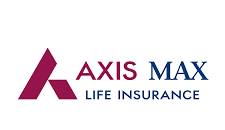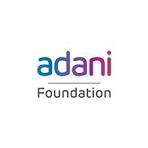· Globally, shingles will affect up to 1 in 3 people in their lifetime5
· Pain of shingles is often described as aching, burning, stabbing and shock-like1
· More than half of both English and Hindi-speaking respondents in India (55% and 76%) respectively believe that shingles is essentially harmless5
Hyderabad, 28 February 2024: GlaxoSmithKline Pharmaceutical Ltd, today released new data from a globally commissioned survey funded by them. The survey finds notable gaps in understanding of shingles risk among individuals aged above 50 years, a group that is most susceptible to the disease.5, 6 The survey conducted amongst 3,500 adults aged 50 and over from 12 countries, assessed respondents’ understanding of shingles, what triggers it, and its impact on people’s lives.5 The survey in India involved 500 participants, with 250 respondents who spoke Hindi and another 250 who spoke English. The data, launched in time for Shingles Awareness Week 2024 (26 February 2024 – 3 March 2024), finds a widespread lack of understanding of shingles and its lifetime risk.
The findings show that globally, a significantly high proportion of those surveyed do not understand their risk of developing shingles, with 86% underestimating that risk.5 In India, 81% of the English-speaking and 86% of the Hindi-speaking respondents surveyed underestimate the risk of shingles.5 Globally, a quarter (26%) believe that 1 in 100 are at risk of shingles in their lifetime, almost a fifth (17%) think it is 1 in 1000, and almost half believe (49%) they are unlikely to develop shingles.5 In India, amongst the English-speaking respondents, 22% believe that 1 in 1000 adults are at risk of developing shingles.5 Amongst the Hindi-speaking respondents,18% believe that 1 in 1000 adults is at risk of developing shingles.5
In reality, most adults already have the virus that causes shingles present in their bodies by the age of 50, which may reactivate with advancing age.6, 7 Shingles is caused by the reactivation of the varicella-zoster virus (VZV), the same virus that causes chickenpox.1 As people age, the strength of their immune response to infection wanes, and this increases their risk of developing shingles.1
The survey results also show a lack of awareness about the pain shingles can cause. The disease typically presents as a rash, with painful blisters across the chest, abdomen, or face. The pain is often described as aching, burning, stabbing or shock-like.1 Yet globally, 1 in 10 adults surveyed don’t know the most common symptoms of shingles, and over a quarter (28%) believe shingles is “essentially harmless”. In India, 55% of the English-speaking respondents and 76% of the Hindi-speaking respondents believe this.5
Dr Rashmi Hegde, Executive Vice President – Medical Affairs, GlaxoSmithKline Pharmaceuticals, India, said: “The survey findings underscore the need to raise awareness about shingles risk in adults over 50. Shingles can significantly disrupt the daily lives of ageing adults and cause them a great deal of discomfort. In this Shingles Awareness Week, we encourage everyone to talk to their doctor about this agonising condition and how to prevent it.”
Following the shingles rash, a person can also experience post-herpetic neuralgia (PHN), a long-lasting nerve pain that can last weeks or months and occasionally persist for several years.1 PHN is the most common complication of shingles, occurring in 5-30% of all shingles cases from findings in various studies.8 However, according to the survey findings, only 14% globally believe that symptoms of shingles can last longer than 6 weeks.5 In India, only 8% of English-speaking respondents and 4% of Hindi-speaking ones think that shingles symptoms last for more than 6 weeks.5
GSK is launching the new survey findings as part of Shingles Awareness Week (26 February 2024 – 3 March 2024), a campaign led by GSK in collaboration with the International Federation on Ageing (IFA). The aim is to raise awareness and address the lack of knowledge about the risks and impact of shingles.
 Newspatrolling.com News cum Content Syndication Portal Online
Newspatrolling.com News cum Content Syndication Portal Online







